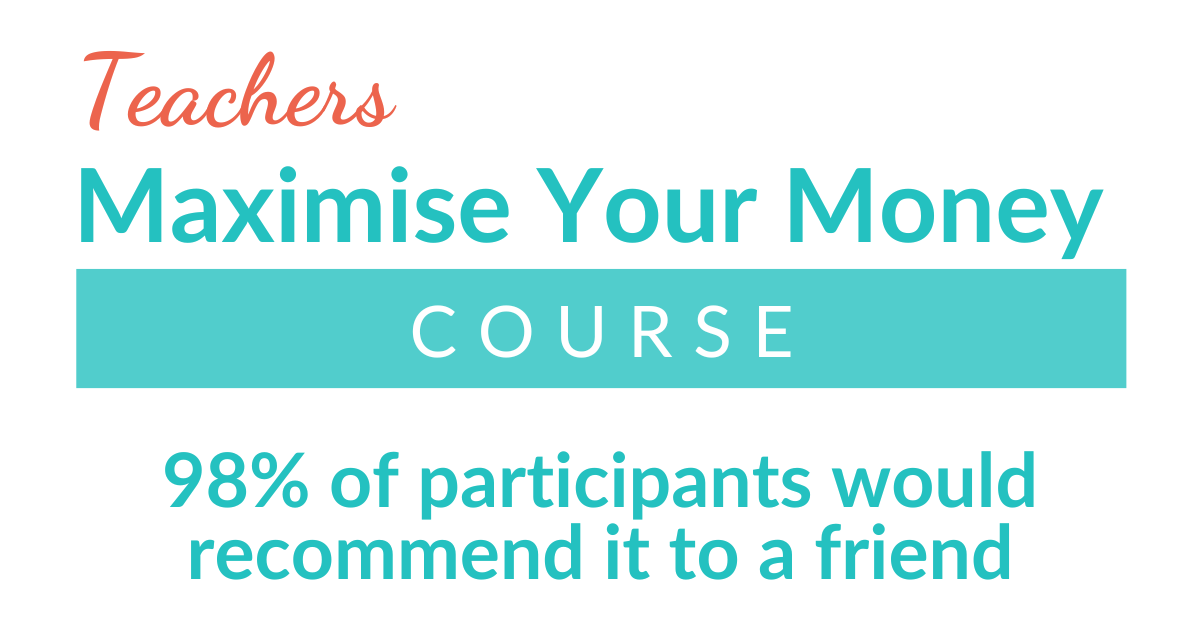Claim your freebie!
Change Your Money Story
- Be excited for the future
- Feel empowered; in control
- See what’s holding you back & create new habits
- Have more money for fun
Take a course!
- understand your money blocks and why they make life difficult
- break old habits and build new ones to help you to feel in control
- change the way you speak about money and begin to feel great about it
Money mindset is a term that is getting bandied about increasingly frequently. But why does money mindset matter and how do you know if you should change your mindset around money?
Money mindset is simply the unconscious thoughts that control how you think about, feel about, and behave with money. Those who think negatively about money will find it difficult to manage money, and will likely struggle for money throughout their lives.
Conversely, having a positive money mindset, is likely to lead to a good relationship with money. This will help you to lead a happier, more secure life and to bring more money into your life "...did you know that how you think about money is the single most important factor that determines whether you are wealthy or not. So, if you want more money in your life it is essential that you develop a positive money mindset."
The Hultquist Firm  In education there is much focus on the difference between growth and fixed mindsets in students. Carol Dweck's explanation of the differences between the two mindsets is perfect.
In education there is much focus on the difference between growth and fixed mindsets in students. Carol Dweck's explanation of the differences between the two mindsets is perfect.
“In a fixed mindset students believe their basic abilities, their intelligence, their talents, are just fixed traits." "In a growth mindset students understand that their talents and abilities can be developed through effort, good teaching and persistence."
Therefore having a growth mindset opens up a whole world of possibilities. With a growth mindset, you can literally take on the world. You can achieve anything that you put your mind to.
Change your mindset
The same principle can be applied to money mindset. Just because your mindset is currently one way, doesn’t mean that it always must be that way. If it is not serving you well, then you can start to change your mindset , in order to improve your life. The people who tend to be happiest generally have a positive outlook in life and are focusing on all the good things they have. Conversely, those who focus on everything that is wrong with their lives tend to end up negative, miserable moaning Minnies! 
This is also true of money mindset – the more positive you are about money, the more easily it will come to you and the better you will feel. If you are constantly negative and have a poor money mindset, then there is every chance that you will be plagued with money problems throughout your life. But how do you know if you have money mindset problems and if you can change your mindset?
This fun quick quiz, which only takes a minute, is a great place to start
The following list is not exhaustive, but it gives you an idea of some of the more common money mindset issues in women.
1. HATING money
PROBLEM: Many women dislike thinking about money. They hate talking about it. They constantly feel uncomfortable about money, and money decisions.
IMPACT: Financial decisions keep getting put off, because they dislike dealing with them. This costs them dearly, because they miss out on good deals and never compare prices. They are confused about their choices for the future, so do nothing to prepare for it, leaving them in a vulnerable position as retirement approaches.
SOLUTION: Start to learn about your own mindset, become conscious of your thoughts, and try to unpick where they have come from. This post on improving your relationship with money has lots of strategies that may help you.
2. Money worries
PROBLEM: Some women worry about money constantly. It’s always on their mind, keeping them awake at night and making them feel ill. They worry that they don't have enough and worry that they will never have enough. They worry about worrying about it!
IMPACT: The fact that they feel that have lack in their life, creates a poverty mindset. They feel stuck in a cycle of poverty and feel powerless to change it. This keeps them stuck in a cycle of worry and prevents them from taking action that would improve their situation.
SOLUTION: Start being grateful for what you do have in life. I know this will seem really difficult, if you feel that you have nothing, but please give it a try. Every night note down 3 things that you are grateful for financially - they can be as small or as large as you like, but find them!
3. Emotional spending
PROBLEM: Emotional spenders often have money mindset issues. If they spend when they are sad, angry, miserable or happy then there is a chance that they are comfort spenders. Other signs are never feeling satisfied with a purchase. It might make them happy briefly, but then they are off looking for the next purchase that will make them happy.
IMPACT: Emotional spenders often find themselves in debt, because they are so easily tempted into overspending.
SOLUTION: Becoming aware of your feelings around money, and the triggers for spending, can help you to take action before you spend. Thinking about how you will deal with these triggers, before they occur, can help you to put into place strategies to deal with them. eg: if you realise that you regularly spend when you are feeling sad, then you can perhaps watch a happy movie, or go for a walk in the fresh air, or phone a friend who always makes you laugh.
It's about recognising what makes you feel like spending, and identifying things that could help you to avoid spending. 
4. Money negativity
PROBLEM: Many people have very negative feelings towards money and often towards people who have money. Ie: “All rich people are arrogant/spoilt/lucky…” Other common negative money thoughts are: "It's shameful to be rich" "I don't deserve to have a lot of money" "If I have money, people will be jealous and mean to me" "It's a hassle having money"
IMPACT: People who have negative views of money often say that they are not interested in money. They are vocal about having no desire for more money and insist that they are happy the way they are.
For some people, this is not a problem, and they are truly happy with what they have. However, for others this is a total money block that is holding them back. It makes them feel "stuck" and powerless, and they are likely to miss out on opportunities to bring in more money.
SOLUTION: Start becoming aware of your thoughts around money. Just notice your thoughts, and think about what they might mean.
Once you have become used to noticing your thoughts around money, you should start to think of ways of making your thoughts more positive. eg: "I can't afford it", could become "How can I afford it?" This should help you to reframe your thoughts about money, and to develop a much more positive relationship with it,
5. Unskilled?
Some people believe that they are "rubbish with money" and constantly put themselves down. “I have never been any good with money” "I can't handle having money" "If I have money, I will just lose it anyway "
IMPACT: Believing this to be true will eventually make it true!
SOLUTION: The power of believing that you can change and that you can be AMAZING with money is massive! Start reading about money, being interested in money and learning how you can make it work for you and your family, to create the wealth, time and happiness that you are looking for.
6. Money as power
Trying to control other people’s spending can also be a sign that there are mindset issues. Withholding funds from partners, arguments over salary size, arguments over spending or dividing up money unfairly are signs that there are control issues in a relationship.
Some people enjoy having bigger and better possessions than other people, because it makes them feel superior to them. This is a dangerous trait, because it can end up in a never-ending spiral of competition and misery.
7 Security
Feeling secure and safe in the future is so important to some people that they leave themselves no money to enjoy now. They are constantly worried about whether they have “enough” for the future and therefore any extra money is likely to get added to their savings and investments. People can keep considerable sums in savings accounts, so that they have money for a "rainy day".
IMPACT: A sign is when they have savings for the future and money in the bank, but they still feel and act as though they are skint. Their first reaction to everything is often “I’m skint” or “I can’t afford it” They hate spending money on unnecessary items. Every transaction feels like an effort and they really dislike handing over money. Often they are reluctant to spend money…..ever.
Keeping money in a savings account often means that over time the value of their money becomes less, because inflation reduces the value of it. They are frightened of investing this money, because they don't know enough about investing, but this costs them dearly as the value of their money is reduced year on year.
While planning for the future is important, it is also vital to enjoy every day and often these people miss out that bit!
SOLUTION: Start a fun fund, and pay a set sum into it every month. This money must be spent on things that you would normally see as unnecessary, frivolous or things that are purely for fun. You can save up for something special, or you can spend it as you go along, but the rule is that every 3 months that account must be emptied!
8. Poor spending
This group often have debts, created because of poor spending habits. You might be fearful of having money, you might be easily tempted into spending, or you might be an emotional spender, like we discussed above.
IMPACT: Anytime you do get money, you seem to spend it until there is none left. You never stop to think if you can afford something – if you see something you want, then you must have it. Not knowing how much money you have available to spend each month makes this even more likely to happen.
9. Secret squirrels
Some people are reluctant to discuss money with anyone, other than their partner, and even then, it can often be really uncomfortable for them. They may have been bought up to believe that it is rude or improper to discuss money.
IMPACT: This can lead to a fear of money and of making financial decisions. This is not a healthy situation, as this can cost a person dearly over their lifetime. Being secretive and closed about money can make it seem shameful. They are sometimes embarrassed at having more or less than their friends and therefore refuse to discuss it. Money conversations in public can make them feel awful and they will do anything to avoid being drawn into a conversation like this.
SOLUTION: Start making conversations about money your new normal. Strike up a chat about money with your friends and family. It doesn't have to be a serious conversation - just try it out! Online is a great place to learn to chat about money - come and join my Your Money Sorted group and see all the chat that goes on in there - then all you need to do is join in.
10. Repel money
Many feel that the supply of money in the world is limited and that there is nothing they can do to bring more money into their life. They may find it difficult to make money and feel quite restricted by this.
IMPACT: Often they may find it difficult to accept money, gifts and even compliments from others. With a mindset which repels money, it is impossible to attract more money into their lives. This can lead to them feeling even more negative about money, which then leads to a spiral of increasing negativity about money.
SOLUTION: Start being grateful for every single piece of money that comes into your life. Start tracking all the money that you DO have in life - each day note down how much money is coming in, and be thankful for it. If you can also track value, you will find that it helps to increase your enthusiasm around money. eg: if a friend buys you a coffee, you can note down £2.50 in value, or if you get something that is reduced by £10 in the sale, add £10 to your value column.
Repeat this exercise every day for a month and see just what a difference it can make to the way you feel about money. Once you have started doing it, you won't want to stop!
Change your mindset?
If any of these statements apply to you, then admitting that, even to yourself, isn't easy. However , it is vital to do this. To lead a full, happy, and successful life, then it is important that you recognise where your mindset is holding you back.
The first step in this is in simply admitting how you feel. Only from acknowledging these feelings will you be able to continue to change your mindset and improve your money story.

Ready to change your mindset for good? See how Master Your Money Mindset can help you to start improving your mindset today.
Eileen x











